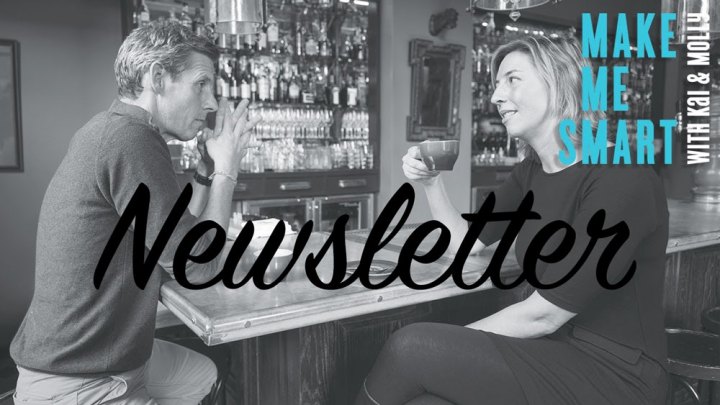
Reaching far and wide: Minimum wage, vaccine rollout and the river of retail
Share Now on:
Reaching far and wide: Minimum wage, vaccine rollout and the river of retail

The News Fix
A provision of President Joe Biden’s American Rescue Plan aims to raise the federal minimum wage to $15 an hour. That’s become one of several sticking points in negotiating the deal, but Democratic lawmakers aren’t backing off. This week, they reintroduced a separate bill known as the Raise the Wage Act, which would lift the federal minimum to $15 by 2025. The issue isn’t going away — even if it doesn’t make it into pandemic relief. From CNBC: “Democrats want to pass a $15 minimum wage through reconciliation. It’s unclear if they can”
Arguments in favor of boosting the base rate are getting stronger. Even before the pandemic, millions of working people in the United States couldn’t afford to feed their families. According to Census Bureau data, more than three-quarters of families receiving SNAP (or food stamps) benefits in 2018 had at least one family member who worked that year — and about one-third had two or more. From Census.gov: “About a Third of Families Who Received Supplemental Nutrition Assistance Program Benefits Had Two or More People Working”
A $15 federal minimum wage could reduce government spending on SNAP and other public assistance and tax credit programs by billions of dollars. And it could lift 1.3 million people out of poverty — many of whom are children — while reducing gender and racial wage gaps, and narrowing inequality. Annie Lowrey in The Atlantic: “The Counterintuitive Workings of the Minimum Wage”

Smart in a Shot
Walgreens has poached Starbucks Chief Operating Officer Rosalind “Roz” Brewer to serve as the retail pharmacy chain’s chief executive beginning next month. Brewer will join the ranks of Fortune 500 CEOs as the only Black woman and one of only five Black CEOs currently in the group — a disparity that’s persisted for decades. Since 1955, when the Fortune 500 list was first published, fewer than 20 of the 1,800 people who’ve helmed those companies have been Black.
Brewer has a huge task before her, joining Walgreens just as its COVID-19 vaccination program is ramping up — and as Amazon and CVS are threatening the company’s market share. But Brewer could be just the right person to take on the competitive, logistical and cultural challenges of mass vaccine distribution. Colleagues said her lived experiences, in corporate leadership and as a Black woman, provide perspectives that will be crucial in rolling out the vaccine as broadly as possible. As one former colleague put it, Brewer will “make sure there’s a voice in the room thinking about access for everyone.”
The Numbers
Jeff Bezos announced this week that he plans to step down as CEO of the e-commerce giant he founded, Amazon.com. He’ll move into the role of executive chairman later this year.
July 16, 1995
When Amazon launched as an online bookseller, Bezos already knew he wanted to expand into other retail categories. He considered a few different names for the startup but ultimately favored Amazon — the world’s largest river.
225,000%
That’s how much Amazon’s stock price grew since it went public, and since Bezos owns a lot of those shares, that means his net worth has also grown handily in the last 26 years. Bezos is currently the second-wealthiest person in the world, with a net worth of $195 billion. (Elon Musk is first.)
$15/hour
Just over a year ago, Amazon established a $15 starting wage for its employees — more than double the current federal minimum wage of $7.25. Still, Amazon remains one of the largest employers of people receiving public assistance through SNAP and Medicaid programs.
None of us is as smart as all of us
Tell us what’s making you smarter at smarter@marketplace.org. We’d love to include your recommendation in a future newsletter.
Not your typical vaccine
Listener Stephanie S. recommends this explainer on how the Moderna and Pfizer/BioNTech vaccines are made, which the writer, Derek Lowe, calls, “not anything close to a traditional drug manufacturing process.” Stephanie says it’s “the vaccine manufacturing story I’ve been waiting for.”
The essential internet
Listener Michael G. recommends this story from BuzzFeed News about a former Comcast salesman who says the company’s Internet Essentials package, a low-cost Wi-Fi service offered to low-income families, doesn’t provide the broadband speed necessary for distance learning — despite Comcast’s repeated assurances to Federal Communications Commission regulators.
Understanding the “psychological immune system”
Listener Sarah S. recommends this piece in The New York Times on how to reason with people we find unreasonable. “I found this to be really interesting and informative,” Sarah says. “I think the more we can understand a person’s motivation for their opinions, the more we can better understand our own.”
This Make Me Smart newsletter is written by Erica Phillips. Sign up for Make Me Smart and our other Marketplace newsletters here.
There’s a lot happening in the world. Through it all, Marketplace is here for you.
You rely on Marketplace to break down the world’s events and tell you how it affects you in a fact-based, approachable way. We rely on your financial support to keep making that possible.
Your donation today powers the independent journalism that you rely on. For just $5/month, you can help sustain Marketplace so we can keep reporting on the things that matter to you.


















